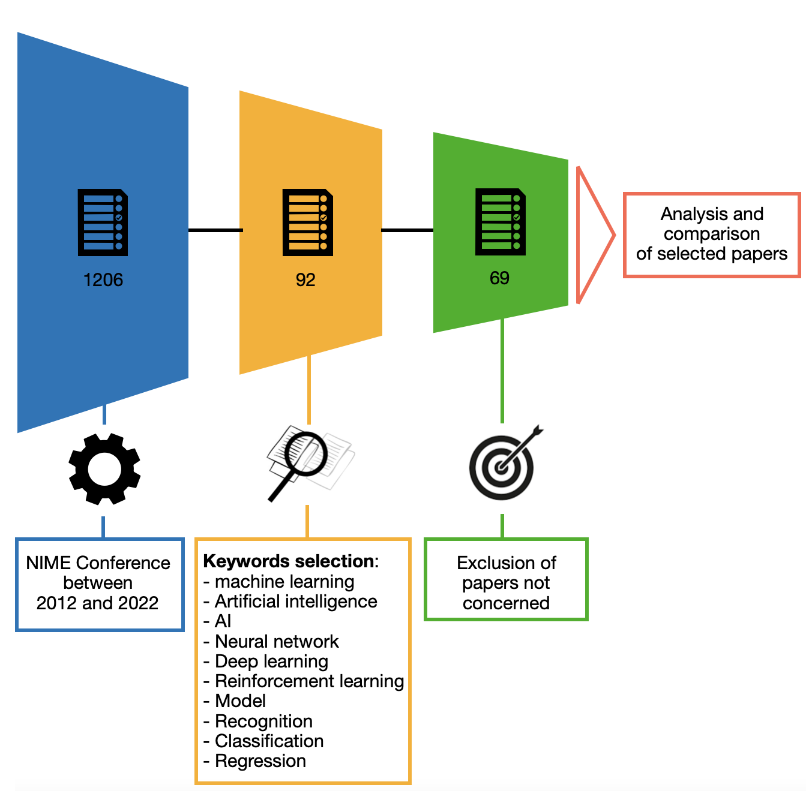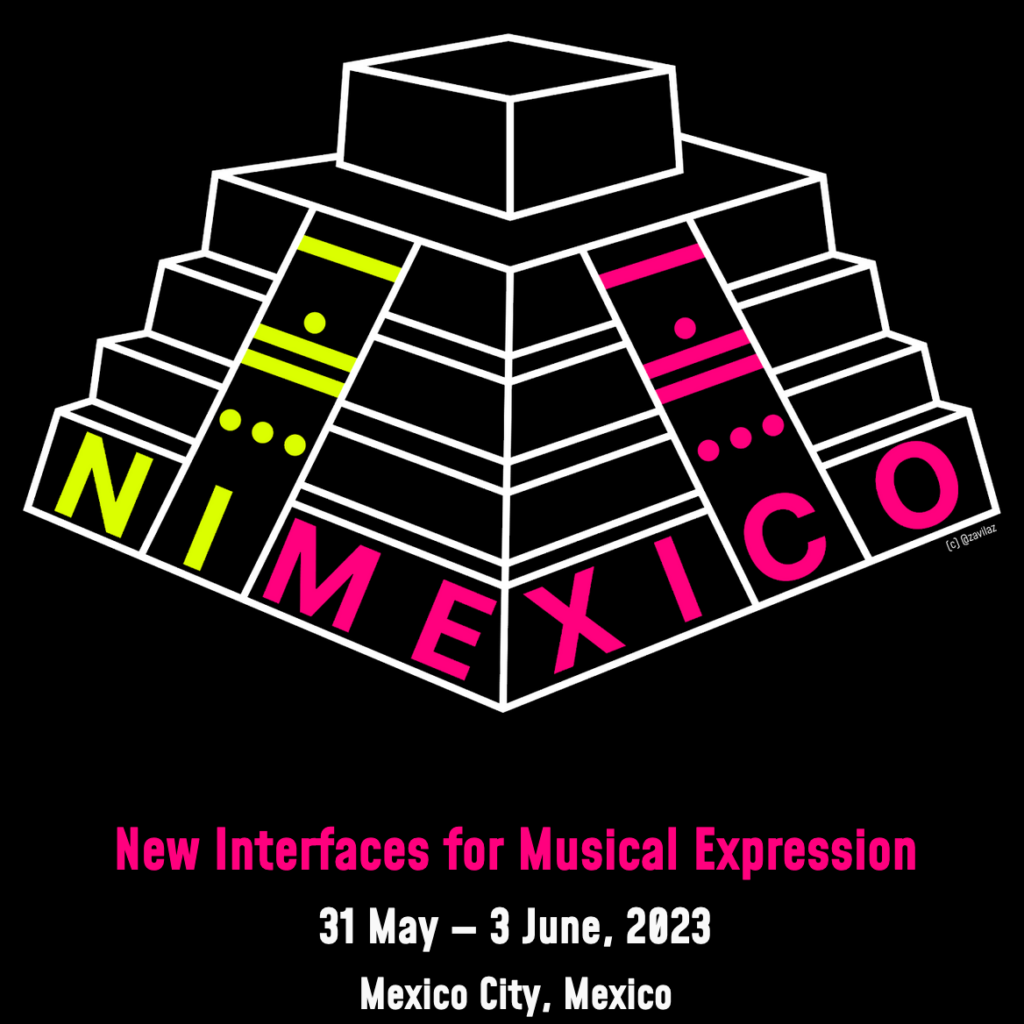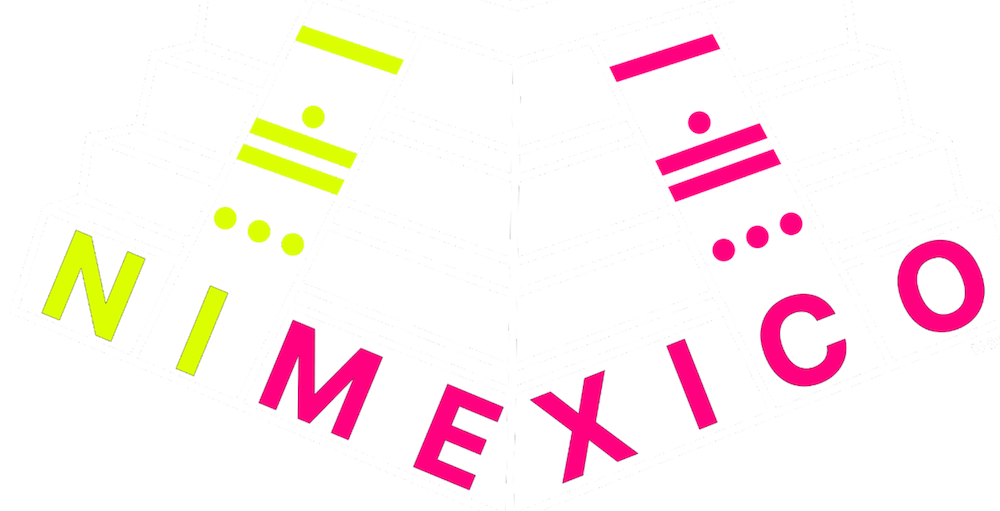New Interfaces for Musical Expression (NIME) is the primary conference in musical interactions and interfaces. NIME 2023 takes place in Mexico from May 31 to June 3. Check out the conference website: https://www.nime2023.org/home
This year, we have two publications that will be presented at the conference, both by Théo Jourdan, post-doctoral researcher at ISIR, part of the ARCOL group.
Machine Learning for Musical Expression: A Systematic Literature Review
Presentation: May 31, 18h35
PDF: https://hal.science/hal-04075492/file/IHM2023___NIME___English-6.pdf

Abstract: For several decades NIME community has always been appropriating machine learning (ML) to apply for various tasks such as gesture-sound mapping or sound synthesis for digital musical instruments. Recently, the use of ML methods seems to have increased and the objectives have diversified. Despite its increasing use, few contributions have studied what constitutes the culture of learning technologies for this specific practice. This paper presents an analysis of 69 contributions selected from a systematic review of the NIME conference over the last 10 years. This paper aims at analysing the practices involving ML in terms of the techniques and the task used and the ways to interact this technology. It thus contributes to a deeper understanding of the specific goals and motivation in using ML for musical expression. This study allows us to propose new perspectives in the practice of these techniques.
Culture and Politics of Machine Learning in NIME: A Preliminary Qualitative Inquiry
Presentation: June 1, 11h40
PDF: https://hal.science/hal-04075438/file/Interview_NIME_2023.pdf

Abstract: For several years, the various practices around ML techniques have been increasingly present and diversified. However, the literature associated with these techniques rarely reveals the cultural and political sides of these practices. In order to explore how practitioners in the NIME community engage with ML techniques, we conducted interviews with seven researchers in the NIME community and analysed them through a thematic analysis. Firstly, we propose findings at the level of the individual, resisting technological determinism and redefining sense making in interactive ML. Secondly, we propose findings at the level of the community, revealing mitigated adoption with respect to ML. This paper aims to provide the community with some reflections on the use of ML in order to initiate a discussion about cultural, political and ethical issues surrounding these techniques as their use grows within the community.
